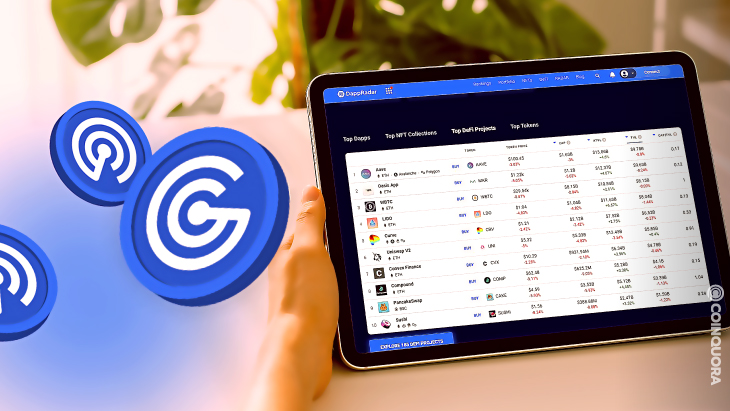- Cryptocurrency exchanges play a vital role as the gatekeepers in the crypto realm.
- Unforeseen fees and costs could result in a more expensive crypto trading venture than expected.
- This list covers the top 10 decentralized crypto exchanges.
Cryptocurrency exchanges play a vital role in the crypto realm, serving as the gatekeepers into and out of crypto. However, exchanging and swapping crypto can become a bit of an expensive venture due to unforeseen fees and hidden costs. That’s why we have created a list of the top 10 dapps that you can use to keep your crypto trading fees as low as possible.
PancakeSwap
At the top of the list is PancakeSwap, which is one of the most well-known and most popular decentralized crypto exchanges. It has a total of 2.88 million monthly users and only charges a 0.25% trading fee.
Trader Joe
Next is Trader Joe, which is built on the Avalanche blockchain. The platform is a self-proclaimed ‘one-stop-shop decentralized trading platform’, and charges a 0.3% trading fee, of which, 0.25% goes to liquidity providers and the rest goes to the Trader Joe platform.
Quick Swap
Third on the list is the Polygon-based, Quick Swap, which launched in October 2020. It’s a really big player in the DeFi space with its $691.86 million in total value locked. The platform charges a 0.3% trading fee.
Katana
Number 4 on the list is Katana, which has taken a fair share of the decentralized exchange market. With $175.11 million in total value locked, the platform has seen more than 81,000 users in the last seven days. Katana also charges one of the lowest trading fees with a 0.03% trading fee.
Alcor Exchange
At number 5 is Alcor Exchange, which focuses on self-listing. The platform has a range of associated fees that depend on the nature of the transaction. For instance, there is a 0.3% fee for swapping, which is divided among liquidity providers.
Then there is also a 0.25% fee for over the counter transactions. However, no fees are charged for small over the counter transactions and NFT trading.
Raydium
Solana-based Raydium is ranked number 1 on DappRadar’s DeFi rankings list for volume traded on its platform over the last week. The platform shares liquidity with the Serum decentralized exchange, creating massive financial clout for both platforms. Users are charged 0.25% trading fees when using the Raydium platform.
ApeSwap
Seventh on the list is ApeSwap which is built on the Binance Smart Chain and Polygon. Users are currently incentivized by the platform to pool liquidity by offering more than attractive returns through yield farming. The best rate is paid out in ApeSwap’s native token, which is called BANANA. The platform charges a 0.2% trading fee.
1Inch Network
Although not licensed to operate in the U.S., 1Inch Network is number 8 on today’s list as it offers users from the rest of the globe zero-fee trading and helps them find the best rates on the market. The platform is a decentralized exchange aggregator, meaning it searches across all platforms to find the best price for users at that moment in time.
Sushi
Sushi is a fork of Uniswap and offers users the ability to trade and swap across multiple blockchains. Users can circumvent the higher fees native to centralized exchanges by using bridging tokens and timing their trades correctly. Users pay a 0.3% trading fee for trading and swapping on Sushi.
Orca
Last on the list is Orca, which is a Solana-based decentralized crypto exchange. Over the past month, the number of users on Orca has increased by 58.3% to around 69,240. A key indicator that the platform has decent growth potential is its ratio of market cap to total value locked.
Even though the native token, ORCA, has been on a 5 month downward trend, the platform has still been able to maintain a strong total value locked amount since the beginning of this year. Lastly, users on the platform are charged a 0.3% trading fee.
Disclaimer: The views and opinions expressed in this article are solely the author’s and do not necessarily reflect the views of CoinQuora. No information in this article should be interpreted as investment advice. CoinQuora encourages all users to do their own research before investing in cryptocurrencies.


